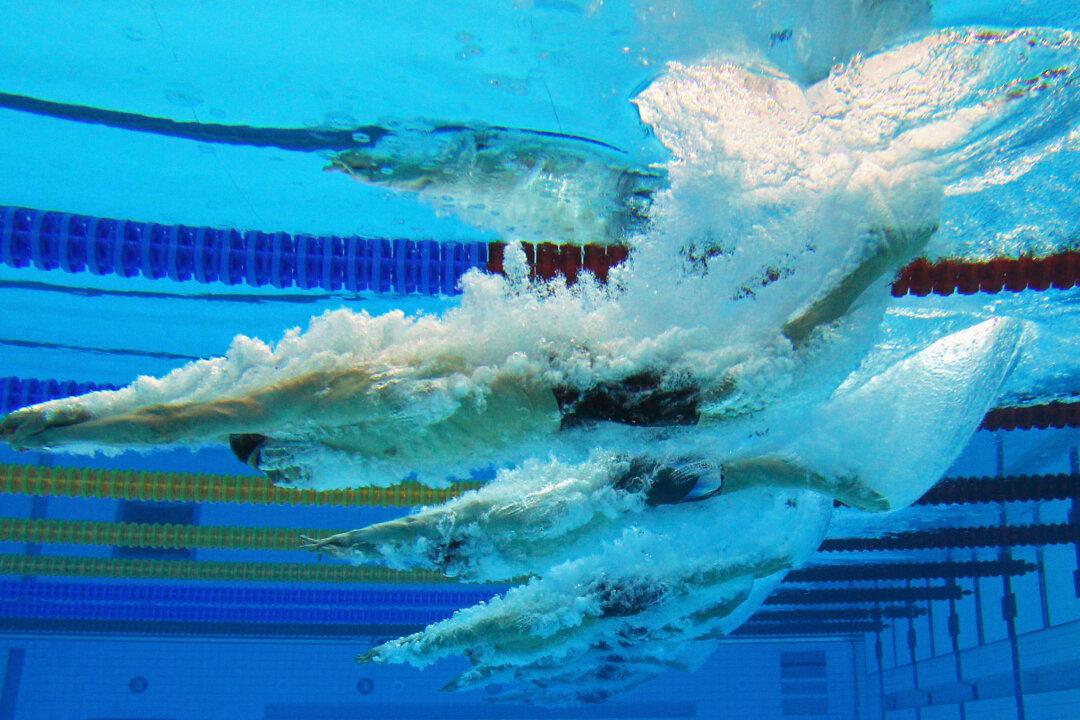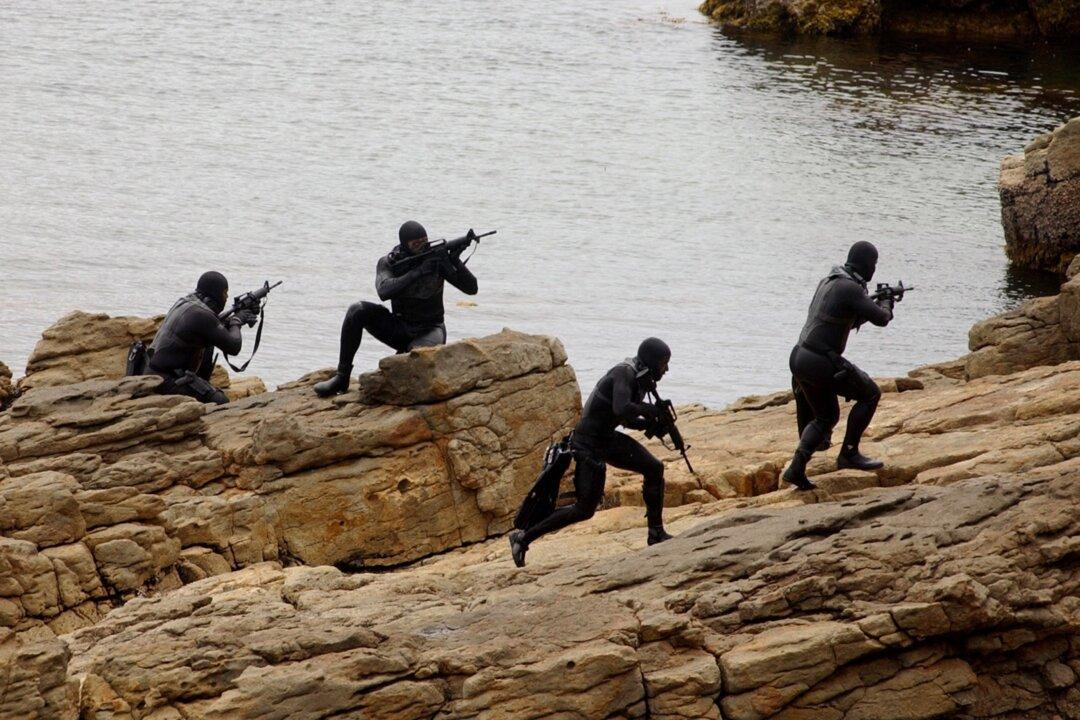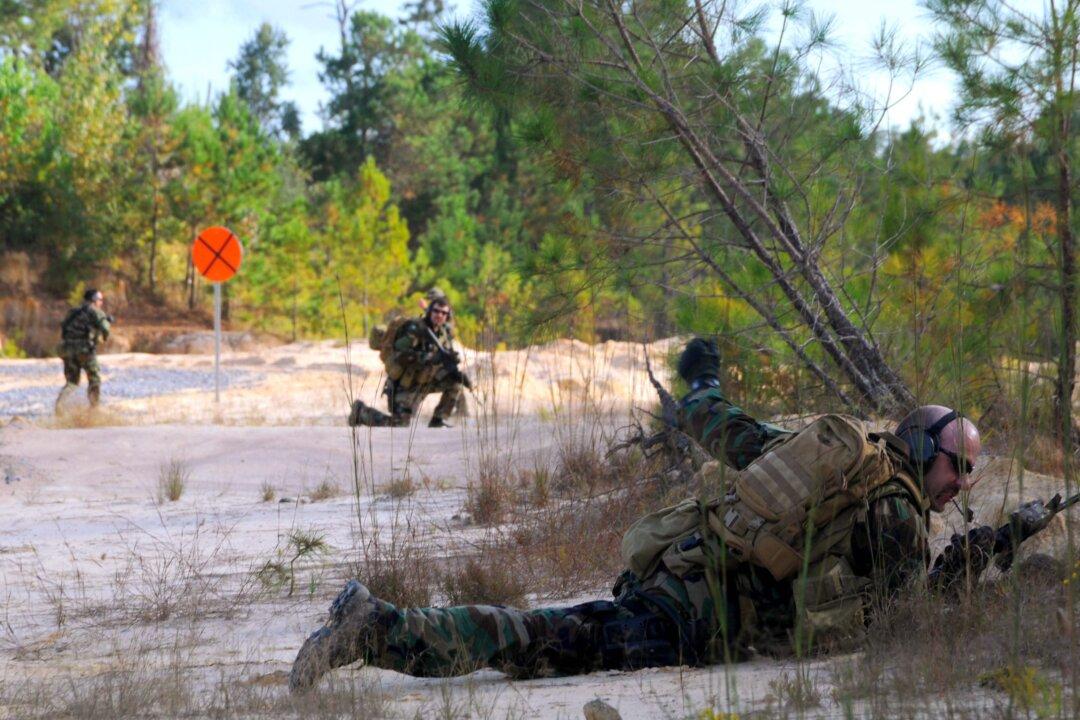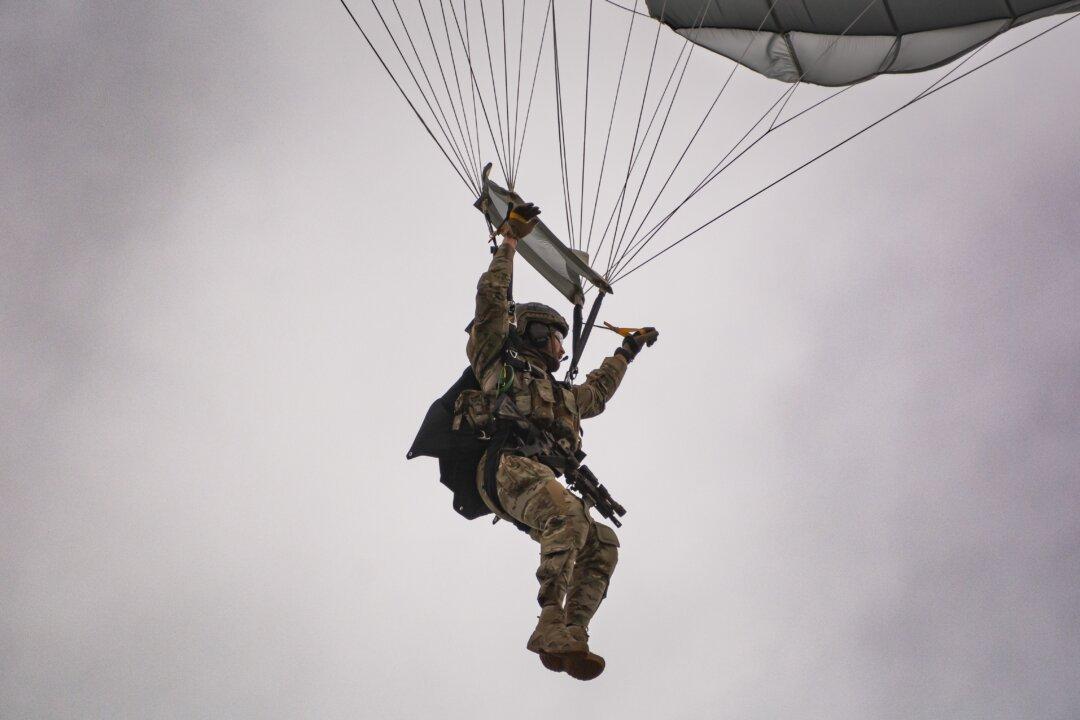I ended up putting my goal of becoming a professional motocross racer aside when I joined the Navy. My plan was to work out a lot and race motocross on the weekends I had free. My recruiter led me to believe I would have plenty of weekends off and I could do whatever I wished in my own off-duty time. Well, as it turned out, I traveled or worked most weekends and my hopes and chances of earning enough points at races to go pro were increasingly unlikely.
At that point in my life I was still working out every day and competing in marathons, bike races, and even my first Ironman competition in Hawaii. I was in the best shape of my life and constantly looking for new challenges. I’d get all the challenge I’d ever want, and then some, when I began my Basic Underwater Demolition/SEAL training. It was there that I’d also feel the sting of quitting once again too.
The first two months of the program (First Phase) consisted of timed runs in the sand, calisthenics, small boat seamanship, hydrographic surveys, and swimming. Our BUD/S instructors had a quick method of testing our fight or flight response. They’d tie our hands behind our backs, bind our feet, and then toss us in the pool.
Some of us figured out that the only way to avoid drowning was to relax, sink to the bottom of the pool, kick off powerfully towards the surface, get our lips above the water line, gasp for a bit of air, then drop to the bottom again.
Others panicked, swallowed water, coughed, choked, and even eventually passed out. Once divers retrieved those persons from the bottom of the pool, the unconscious trainees were rolled on their sides and were revived. Then, instructors screamed in their faces, “Are you gonna quit? Did you get uncomfortable? What are wasting time for, quitter? You want to quit now?”
They were given thirty seconds to answer before they were tossed out of the program. Lots of guys left voluntarily.
Those who said they wanted to keep going were thrown back in the pool. The ones who refused to give up, who could suppress the need to breathe, who trusted that they’d be rescued if something went wrong and were prepared to lose consciousness ultimately passed. The instructors called it drown-proofing.
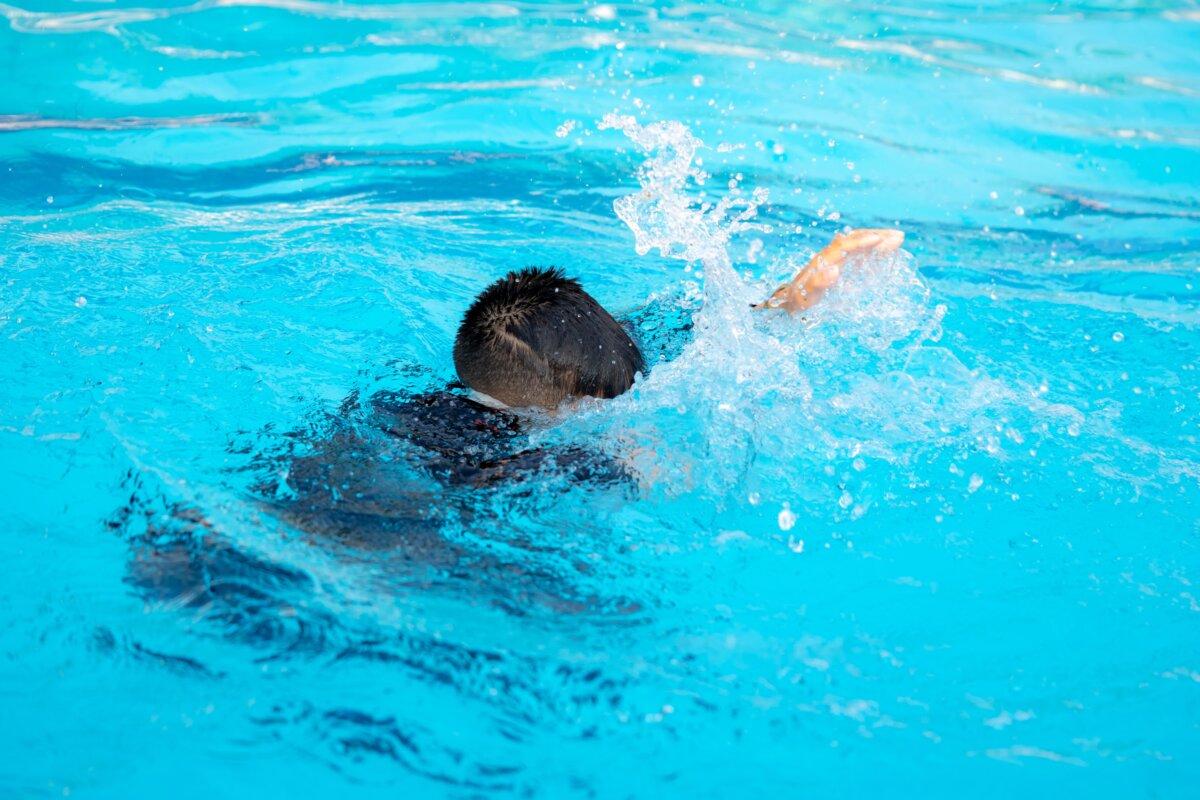
During one exercise we had to stand on the side of the pool, do a forward flip into the water, then complete a 50-meter swim underwater without coming up for air.
When it came to my turn, I did my flip and swam 25 meters, reaching the far wall, and executed my flip-turn and started back. At that point it felt like an ice pick was going through my head as my lungs started to burn with the exertion. I wanted to breathe so badly. The feeling that I needed air became so intense, I just shot to the surface to suck in some oxygen. Almost immediately an instructor shouted, “You quitter! Get out of the pool and stand over there with the other quitters!”
Feeling about two inches tall, I got out and joined the majority of my classmates along the side of the pool. We stood there sheepishly, looking for a place to hide, as eight of our compatriots completed the swim as required. As they hauled themselves out of the water, the instructor shouted to the eight who had passed, “You see those losers over there? They quit. You want to go to war with those quitters? They were feeling a little uncomfortable and had to come up to breathe. The hell with them. We can’t allow lower than whale-shit quitters to continue on with training.”
As tough as the instructors were on us, I was even harder on myself. What the hell’s wrong with you? Just because you were a little uncomfortable you had to come up for air? That’s pathetic! All I did for the previous four years was to train for BUD/S. I wanted nothing else in life but to be a SEAL. I felt as though when I quit, my life was over. It had no meaning at all. I couldn’t believe I felt a little uncomfortable, a little bad for myself, and I just quit again.
Meanwhile, a couple of the instructors huddled together and were talking. One of them then said, “Alright, let’s give these quitters one more chance.”
I told myself, whatever happens, I’m not coming up for air. I don’t care if my head explodes. I’m not quitting this time. I jumped back into the water, swam to the far end, did my flip-turn, and started back. It wasn’t long into my return trip across the pool that my lungs started to scream once again. The feeling that there was an ice pick in my brain was even worse this time around as I struggled to make my way through the water.
Remembering how it felt to come up short on my previous attempt, I forced myself to press onward. By that point, my entire body was pleading with me to rise to the surface and suck in some air, but I ignored those instincts. You can do this, I told myself as the wall drew nearer. You have to do this.

Later in my training I would learn that while you might think that you need air, in reality your body isn’t lacking oxygen at all. Instead, it is the CO2 receptors in your brain telling you that it’s time to exhale and shed the carbon dioxide that has built up while you hold your breath. If you exhale just a little, you can easily last a minute or so longer.
But at that moment I hadn’t acquired that particular skill, and as a result I blacked out in the water. I don’t remember seeing or feeling the wall. All I know is that the safety divers pulled me out of the pool, and I heard one of the instructors say, “Okay, you passed.”
That’s all I wanted to hear. I wasn’t kicked out of BUD/S and I had learned another valuable lesson. Quitting is never an option in the Teams. In fact, it would never cross my mind again. Even when I was injured, about to drown, or captured by the enemy, I never gave up. I learned that it was better to be tortured or to die, then to disgrace myself, my country, or my teammates.
I also realized that I was lucky enough to get a second chance, and I made the most of it. Not everyone is so fortunate. It was a good reminder to make the most of the opportunities that we are given, because they may not come around again.
Armed with this knowledge and my “don’t ever quit” attitude, I went on to graduate from BUD/S. Of the 120 men that started with me, only twenty-three passed the course. It would be another six months before I was officially off probation and awarded my highly-coveted SEAL trident. That was one of the proudest days of my life. About four years after that came another proud day when I was selected for SEAL Team Six, the most elite of all the SEAL teams.
These experiences taught me that the most important weapon an individual can develop isn’t thickly-muscled arms, powerful legs, or top-notch physical stamina. Sure, those things can be a benefit when you’re in the thick of an intense situation. But it is a strong, positive, keenly focused, unwavering mental outlook—something we in the Teams call the Combat Mindset— will see you through the most difficult of challenges. It is something that highly successful people from all walks of life have, whether they are SEALs, endurance athletes, mountaineers, surgeons, accountants, or CEOs.
(To be continued...)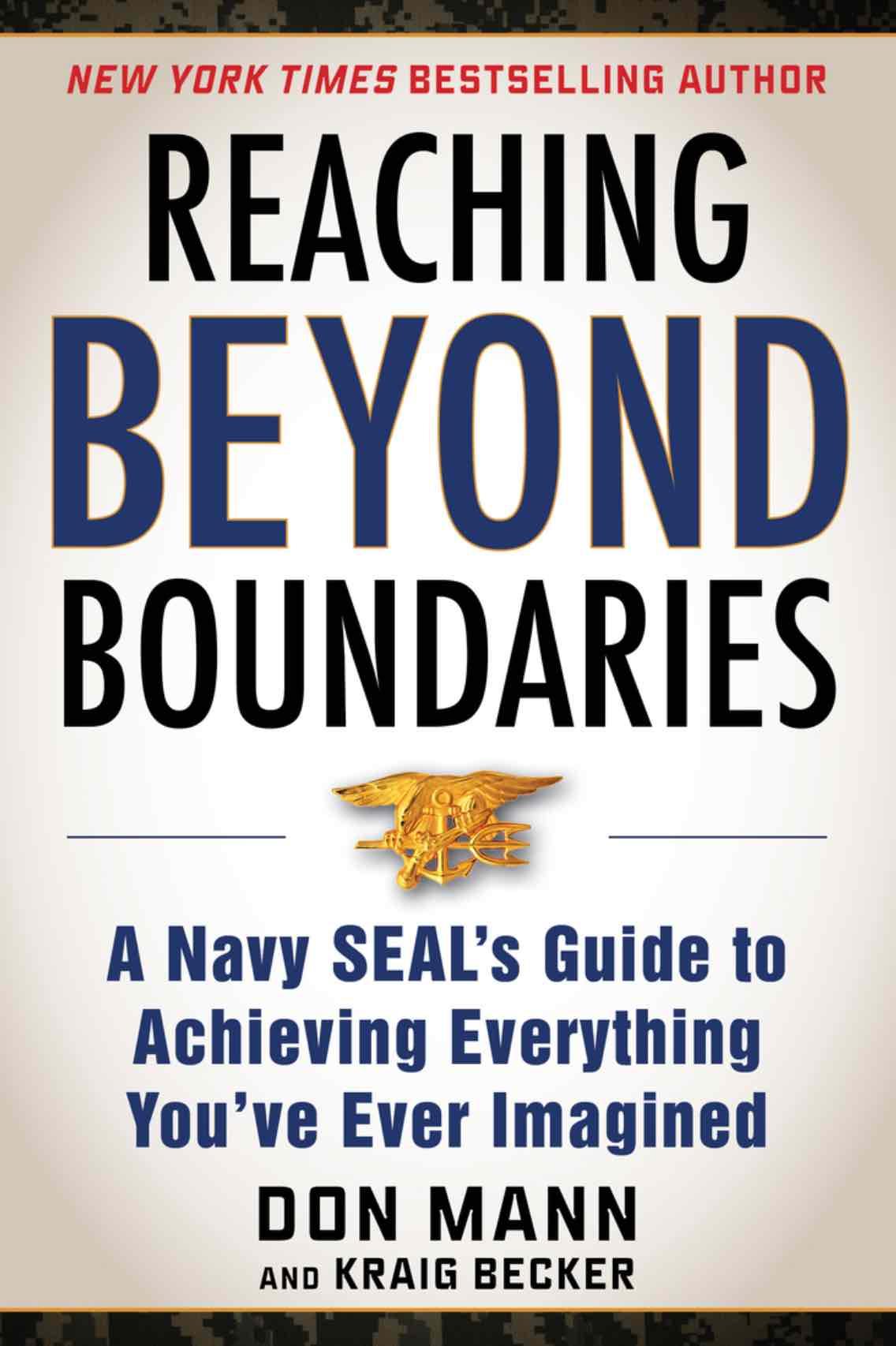 This excerpt is taken from “Reaching Beyond Boundaries: A Navy SEAL’s Guide to Achieving Everything You’ve Ever Imagined” by Don Mann and Kraig Becker.
To read other articles of this book, click here.
To buy this book, click here.
This excerpt is taken from “Reaching Beyond Boundaries: A Navy SEAL’s Guide to Achieving Everything You’ve Ever Imagined” by Don Mann and Kraig Becker.
To read other articles of this book, click here.
To buy this book, click here.
The Epoch Times copyright © 2023. The views and opinions expressed are those of the authors. They are meant for general informational purposes only and should not be construed or interpreted as a recommendation or solicitation. The Epoch Times does not provide investment, tax, legal, financial planning, estate planning, or any other personal finance advice. The Epoch Times holds no liability for the accuracy or timeliness of the information provided.

